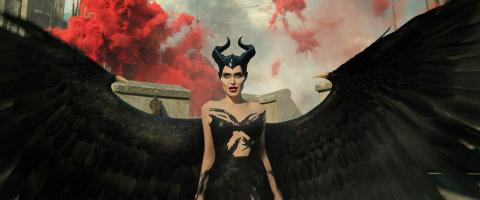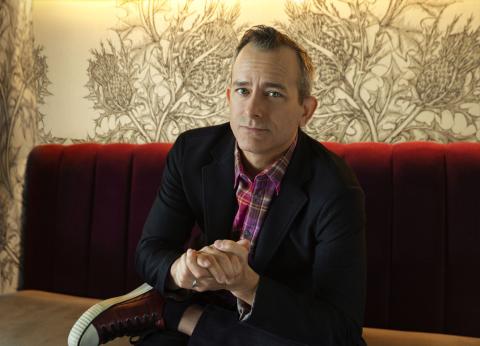Maleficent Composer: 'Every Note Points to the Story'

Image courtesy of Walt Disney Pictures
Film composer Geoff Zanelli B.M. '96 has dozens of projects to his credit, most recently Disney's Maleficent: Mistress of Evil, which stars Angelina Jolie. We asked him about his approach to scoring, why he's drawn to certain types of films, and the technical and creative challenges of his chosen career.
Tell us about your score for Maleficent: Mistress of Evil.
Geoff Zanelli: Maleficent: Mistress of Evil is the second film in the franchise, so it's a continuation of the characters and story set out in the first film. That first score, which was brilliantly written by James Newton-Howard, made a distinct choice to honor a classic sound without using the themes from the 1959 animated Sleeping Beauty film, since it was carving such a new path.
The phrase “timeless, not trendy” kept popping into my head as I wrote my score, and that was a guiding principle. My approach to this score was different from the first one in some ways, but it does still honor the story's roots in classic fairy tales.
You have scored several films for Disney (Pirates of the Caribbean: Dead Men Tell No Tales, The Odd Life of Timothy Green, Christopher Robin). These films also all have a fantasy element to them. Would you say this genre has become your specialty?
Zanelli: Yes, I realized recently that I've become a Disney composer! It's hard to say exactly why. Films, filmmakers, and composers gravitate toward each other, surely, and that's part of the reason.
"Berklee was and continues to be the perfect playground for young musicians. You've got people from all over the world, and they play instruments and music you've never heard before. They inspire you and hopefully you inspire them, too."
—Geoff Zanelli B.M. '96
I was raised on fantasy films, actually. When I was young, I was a latchkey kid and I had the house to myself for a few hours after school. This was at the dawn of cable television, so I'd put on the TV and inevitably there would be a fantasy film on: Beastmaster, Krull, Clash of the Titans, that sort of thing. I'd watch them over and over.
The genre definitely has an appeal to me, and that makes it easier for me to have conversations with directors who are making imaginative films. I'm lucky in that I get to work in all sorts of genres, but you're right to say I've done a lot of fantasy lately, and I definitely hope to do more. Most of my favorite films to watch have an element of fantasy to them.

Geoff Zanelli B.M. '96
You also scored a recent cop thriller, Black and Blue. Can you discuss scoring that film and the creative challenges of scoring such different movies?
You've hit on the reason I'm a film composer. The creative challenges of scoring all sorts of films are what made me commit to this career. I love that I can score a fantasy film, then go on to Black and Blue, then a horror movie, then a live show for the United Nations. That can and does all happen in the space of six months.
But there's one consistent thing in all of that, and it's The Story. Everything I write is in service to the story being told, and it doesn't matter if it's witches fighting over kingdoms or corrupt police officers trying to get away with a crime. Every note points to the story and helps tell it. I have a director friend who says, "Everyone who works on a movie should have 'assistant storyteller' on their business card," and I've adopted that philosophy.
As for the actual challenges, it's more about finding the right style for a film and then executing my vision for a score within that style. For Black and Blue, it felt like it should be modern, electronic, with an emphasis on synthesis and guitars and only a little bit of orchestra. Maleficent, of course, was the polar opposite. A hundred and ten musicians and 56 singers all in a room, playing acoustically, is pretty far from just me and a guitar at two in the morning.
How did your time at Berklee prepare you for your career?
Berklee was and continues to be the perfect playground for young musicians. You've got people from all over the world, and they play instruments and music you've never heard before. They inspire you and hopefully you inspire them, too. Combine that with the way music can break down cultural barriers and open the world up to you, if you let it, and you're in a very special place!
Forget for a second that you're learning your craft, which of course you are, but what you're really doing at Berklee is experimenting, finding new ideas, and, importantly, making mistakes you can learn from. I had so many late nights in the studios trying bizarre ideas, most of which didn't work, but for me Berklee was a forgiving environment where I could just try things, learn from things, and take that out into the real world with confidence I wouldn't otherwise have had.




